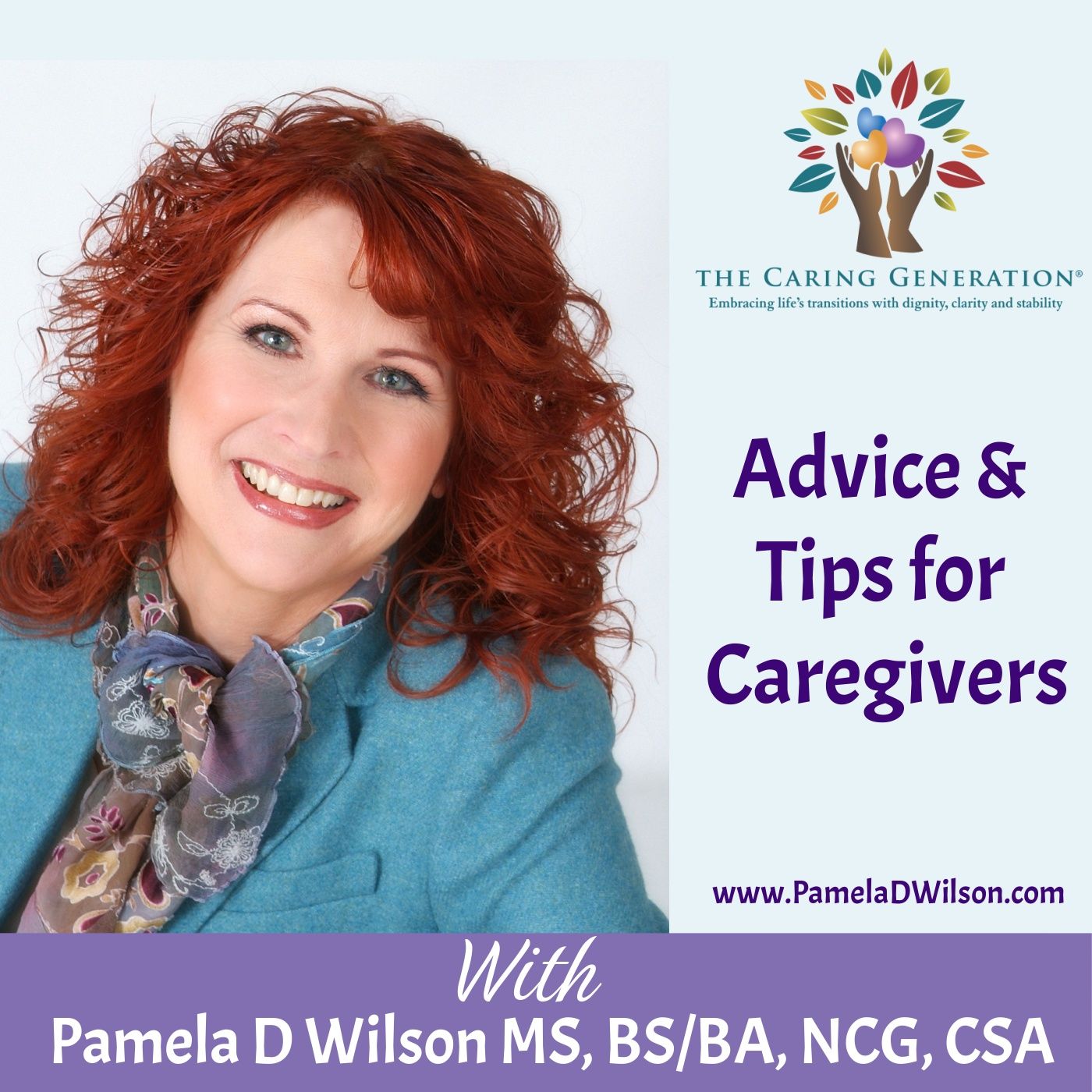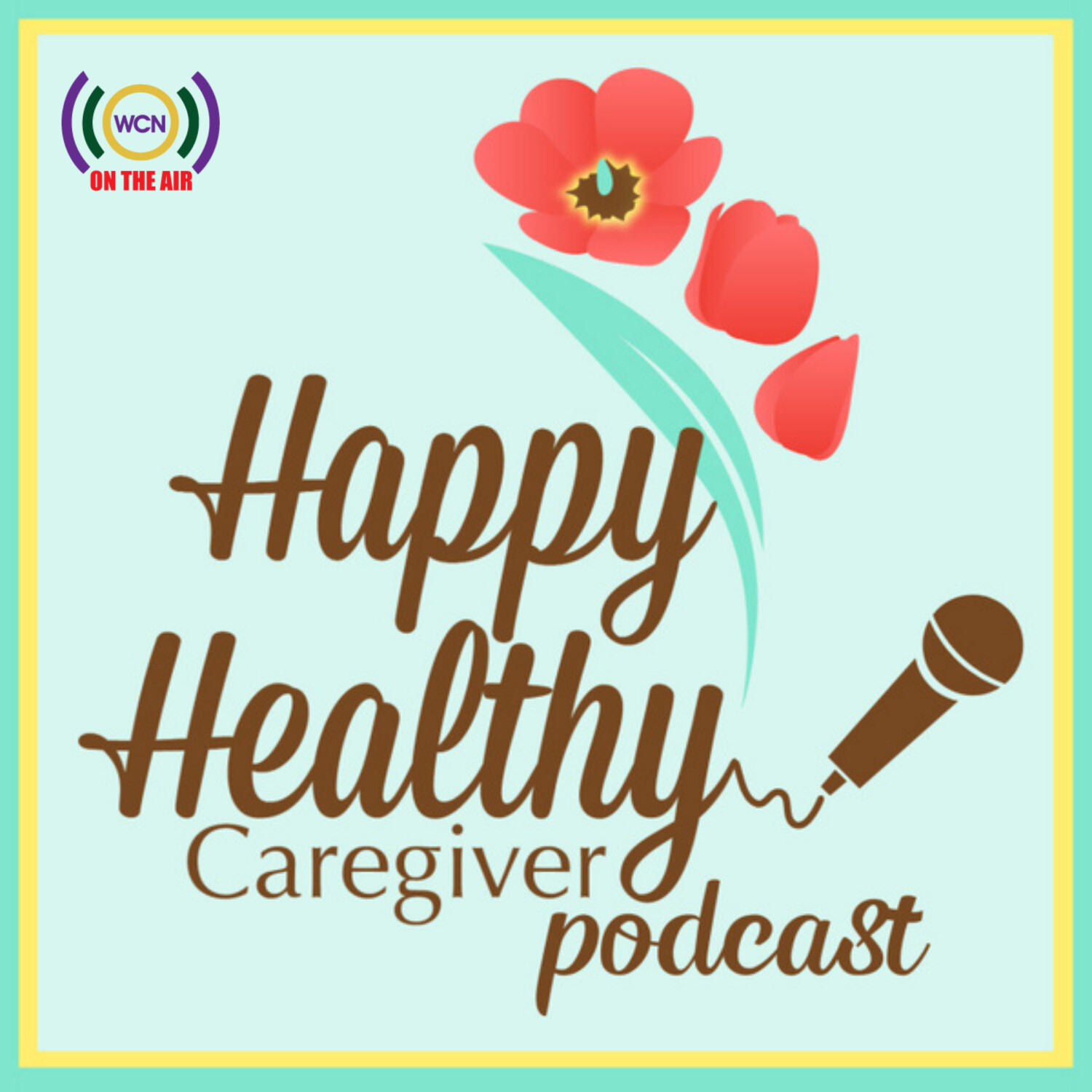
The Caregiver Innovation Show
The Caregiver Crisis Podcast
For family caregivers juggling it all — work, kids, aging parents — this podcast is your lifeline.
We cut through the overwhelm to bring you real stories, practical tips, and tech tools that help you care smarter, not harder.
Hosted by The Caregiver Crisis Initiative, each episode explores simple ways to reduce stress, keep loved ones safe at home, and restore your peace of mind. No fluff. No guilt. Just real help.
🎙️ Featuring expert guests, product spotlights, and caregiver voices.
🧠 Learn what works, when to use it, and why it matters.
🔒 Save the “how” for when you're ready to go deeper inside our private community.
Free Starter Toolkit →
Tech Partner: Electronic Caregiver
Subscribe and join the movement to make care easier — one episode at a time.
🎧 Become a supporter of the show!
https://www.buzzsprout.com/2408853/support
The Caregiver Innovation Show
How to Keep Mom Independent (Even When You’re States Away)
We explore the challenge of caring for aging parents from a distance while respecting their independence, focusing on how supportive technology can create the perfect balance between oversight and autonomy.
• Addressing the fear of being seen as the "hovering child" even from afar
• How technology like Electronic Caregiver can provide support without feeling intrusive
• Key benefits including medication reminders, emergency response, and companionship features
• Strategies for starting the conversation about tech support with potentially resistant parents
• The importance of user-friendly interfaces that don't require technical expertise
• Reframing independence as having the right support system rather than being completely alone
Consider whether technology might be the tool your family needs to bridge distance while empowering your loved ones to maintain their independence.
Welcome to the Deep Dive. Today we're getting into a really common challenge navigating that tricky space of caring for older parents from a distance.
Speaker 2:Right, While also trying to respect their independence. They want to manage on their own.
Speaker 1:Exactly, it's tough, isn't it? How do you support them without, you know, making them feel like you're intruding, especially miles away?
Speaker 2:Well, that's precisely the balancing act we want to explore.
Speaker 1:Okay.
Speaker 2:Our mission for this Deep D dive is to look at solutions, ways to provide that oversight but also protect their autonomy.
Speaker 1:And we're focusing on technology today.
Speaker 2:Yeah, specifically supportive technology. We're drawing on some insights about systems like electronic caregiver and how they aim to empower seniors.
Speaker 1:Good, because that first hurdle, I think for many people listening is that worry about being seen as well interfering.
Speaker 2:Oh, absolutely that fear of being the hovering child, even from afar.
Speaker 1:You want to help, but you really don't want your parent feeling like you think they can't cope.
Speaker 2:It's a very real concern. Caregivers often hesitate, right, they don't want to damage that relationship, yeah, but what's interesting is how technology can offer a different kind of support.
Speaker 1:How so.
Speaker 2:It can be present, offer help, but maybe without feeling like someone's constantly looking over their shoulder.
Speaker 1:Okay, so let's unpack that. You mentioned electronic caregiver and systems like Addison. How do they actually do that? Isn't tech still watching, in a way?
Speaker 2:It's interesting you say that, because often the feedback from seniors is actually the opposite. Really, yeah, many report feeling more secure, more in control.
Speaker 1:How does that work?
Speaker 2:Well, knowing that if they say had a fall, help is instantly available, or getting that gentle nudge about taking their pills.
Speaker 1:OK.
Speaker 2:It can actually boost their confidence in living alone. It's like having a safety net.
Speaker 1:Ah, ok, so it's there when needed, but not always in your face.
Speaker 2:Precisely it's support that enhances independence rather than undermining it Right.
Speaker 1:So what are some of the concrete benefits we're talking about?
Speaker 2:Well, there are several key things. Medication reminders are a big one.
Speaker 1:Missed doses can be serious.
Speaker 2:Very serious. So automated prompts really help with sticking to the schedule. Then there's the emergency response.
Speaker 1:Crucial.
Speaker 2:Absolutely critical Immediate access to help. But beyond emergencies, yeah, some systems have friendly check-ins, just a little interaction, which can really help with loneliness.
Speaker 1:Oh, that's nice.
Speaker 2:And even things like cognitive games or activities keeping the mind active.
Speaker 1:Those all sound genuinely useful things that make daily life a bit easier, a bit safer, Exactly. But here's the tricky part, maybe how do you even start? Talking about this with a parent, especiallyhmm especially if they might be a bit resistant to you. Know technology?
Speaker 2:that conversation is so important and delicate, mm-hmm. You need to approach it with empathy, frame it around their goals like what like their desire to stay independent, to feel safe in their own home okay, so, so, less we need to monitor you and more. More like hey, I came across this thing. It seems like it could help you keep living comfortably at home. Knowing helps easy to get if you ever need it. Something like that.
Speaker 1:And listening is key, I guess.
Speaker 2:Absolutely Listen to their worries. Is it privacy? Is it complexity? Address those directly.
Speaker 1:Right, because complexity is a big one. It can't feel like learning. I don't know rocket science.
Speaker 2:No, definitely not, and the good systems are designed specifically not to be complicated.
Speaker 1:User-friendly.
Speaker 2:Very Intuitive interfaces, simple buttons. The aim is for it to just become a helpful part of their background, not a frustrating gadget.
Speaker 1:Makes sense. So, as we sort of wrap up this deep dive, what's the core message you'd want people to take away?
Speaker 2:I think the main thing is this Independence isn't really about being totally alone.
Speaker 1:Right.
Speaker 2:It's about having the right support system in place.
Speaker 1:That's a great way to put it.
Speaker 2:And for so many families dealing with distance technology can be a really vital part of that system. It fosters that autonomy while also giving caregivers peace of mind.
Speaker 1:Both sides benefit. That's a really important point. So for all of you listening, maybe take a moment to think about what that right support system looks like for your own family situation. Could technology perhaps be a tool there to help bridge that distance? Empower, independence Definitely something worth considering.
Speaker 2:Yeah.
Speaker 1:Thanks for joining us for this deep dive.






